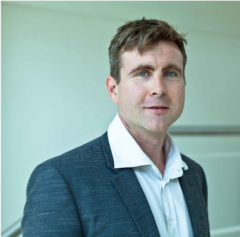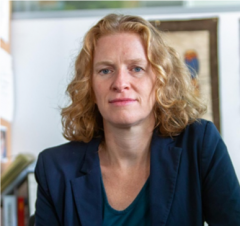We are pleased to announce the following keynote speakers for the 10th annual International Sustainability Transitions Conference.
- Frank Geels, University of Manchester (watch keynote video)
- Sarah Burch, University of Waterloo (watch keynote video)
- Jennie Stephens, Northeastern University (watch keynote video)
- John Robinson, University of Toronto (watch keynote video)
- Jochen Markard, ETH Zurich (watch keynote video)
- Heleen de Coninck, Radboud University (watch keynote video)
- Niki Frantzeskaki, Erasmus University Rotterdam (watch keynote video)
Frank Geels
 Professor Frank Geels from the Manchester Institute of Innovation Research and the Sustainable Consumption Institute at the University of Manchester is a world-leading scholar on socio-technical transitions, with six books and seventy peer-reviewed articles published including in Science, Nature Climate Change and Global Environmental Change. He is particularly well-known for his conceptual and empirical work on the Multi-Level Perspective (MLP) and Strategic Niche Management (SNM).
Professor Frank Geels from the Manchester Institute of Innovation Research and the Sustainable Consumption Institute at the University of Manchester is a world-leading scholar on socio-technical transitions, with six books and seventy peer-reviewed articles published including in Science, Nature Climate Change and Global Environmental Change. He is particularly well-known for his conceptual and empirical work on the Multi-Level Perspective (MLP) and Strategic Niche Management (SNM).
Between 2011-2018, Frank was chairman of the Sustainability Transitions Research Network. He has twice won a Research Publication Award from the International Association for the Management of Technology, has been selected by Thomson Reuters into their prestigious list of ‘Highly Cited Researchers’, identified as one of The World’s Most Influential Scientific Minds 2014, and elected as member of the Academia Europaea and Academy of Social Sciences.
Geels has written invited reports about sustainability transitions for the European Environment Agency (EEA), OECD, European Commission, UK Department for Environment, Food and Rural Affairs, and Dutch Department of Environmental Affairs. He was appointed to the EEA Scientific Committee (2017-2020) and selected to serve as Lead Author for the IPCC’s Sixth Assessment Report (2018-2021)
Sarah Burch
 Professor Sarah Burch from the Department of Geography and Environmental Management University of Waterloo holds the Canada Research Chair in Sustainability Governance and Innovation. Her research, writing and teaching focus on transformative responses to climate change at the community scale, innovative strategies for making progress on sustainability, and the unique contributions that small businesses can make to this solving this complex challenge.
Professor Sarah Burch from the Department of Geography and Environmental Management University of Waterloo holds the Canada Research Chair in Sustainability Governance and Innovation. Her research, writing and teaching focus on transformative responses to climate change at the community scale, innovative strategies for making progress on sustainability, and the unique contributions that small businesses can make to this solving this complex challenge.
She was a Coordinating Lead Author of the Earth System Governance project’s New Directions Initiative, which drafted the Science and Implementation Plan to inform the research of this international network of more than 500 environmental governance scholars over the next 10 years. She was also Contributing Author to the Fourth Assessment Report of the Intergovernmental Panel on Climate Change and will be a Lead Author in the IPCC’s 6th Assessment Report which will be delivered in 2021.
In 2018, Burch was honored as one of Canada’s Top 40 under 40 (an annual recognition of Canada’s outstanding young leaders). She has also recently been elected to the prestigious Royal Society of Canada’s College of New Scholars.
Jennie Stephens
 Currently the Director of the School of Public Policy and Urban Affairs at Northeastern University in Boston, Dr. Jennie Stephens is recognized as a multidisciplinary academic innovator and a world expert on the intersection of social justice, climate change, and renewable energy transitions. Dr. Stephens’s research focuses on strengthening climate and energy resilience by understanding the complex social, political, and economic dynamics of energy system change as well as society’s responses to climate change.Among her multiple projects, Stephens explores institutional and cultural innovation in the energy sector, including gender diversity, energy democracy, and technological optimism as well as the “usability” of climate science in climate resilience efforts.
Currently the Director of the School of Public Policy and Urban Affairs at Northeastern University in Boston, Dr. Jennie Stephens is recognized as a multidisciplinary academic innovator and a world expert on the intersection of social justice, climate change, and renewable energy transitions. Dr. Stephens’s research focuses on strengthening climate and energy resilience by understanding the complex social, political, and economic dynamics of energy system change as well as society’s responses to climate change.Among her multiple projects, Stephens explores institutional and cultural innovation in the energy sector, including gender diversity, energy democracy, and technological optimism as well as the “usability” of climate science in climate resilience efforts.
Professor Stephens has published widely, including piecesin the Wall Street Journal, Science, the International Spectator, Environmental Science and Technology, and Global Environmental Change. Her most recent book, “Smart Grid (R)Evolution: Electric Power Struggles” (Cambridge University Press, 2015) uses a sociotechnical systems approach to explore the social and cultural dimensions of energy transitions, adding new perspectives to the predominantly techno-economic study of smart grid technologies.
Dr. Stephens is a recent Leopold Leadership(2015-2016) fellow at the Stanford Woods Institute for the Environment, and is also the Director for Strategic Research Collaborations at Northeastern’s Global Resilience Institute. She completed her PhD at the California Institute of Technology and undertook post-doctoral research at the Harvard Kennedy School. Dr. Stephens is also a former visiting lecturer at the Massachusetts Institute of Technology.
Follow her on Twitter
John Robinson
 John Robinson is a Professor at the Munk School of Global Affairs and Public Policy and the School of the Environment at the University of Toronto. Robinson’s research focuses on the intersection of climate change mitigation, adaptation and sustainability; the use of visualization, modelling and citizen engagement to explore sustainable futures; sustainable buildings and urban design; the role of the university in contributing to sustainability; creating partnerships for sustainability with non-academic partners; and, generally, the intersection of sustainability, social and technological change, behaviour change, and community engagement processes.
John Robinson is a Professor at the Munk School of Global Affairs and Public Policy and the School of the Environment at the University of Toronto. Robinson’s research focuses on the intersection of climate change mitigation, adaptation and sustainability; the use of visualization, modelling and citizen engagement to explore sustainable futures; sustainable buildings and urban design; the role of the university in contributing to sustainability; creating partnerships for sustainability with non-academic partners; and, generally, the intersection of sustainability, social and technological change, behaviour change, and community engagement processes.
Robinson’s work in sustainable development blends academic excellence with a commitment to developing tools and solutions for practitioners and stakeholders. In the 1980’s, Dr. Robinson pioneered a planning method called backcasting- which defines a desirable future and then works backwards to identify policies and programs that connect the specified future to the present. He has applied and used this approach to study and explore sustainability transitions. Robinson’s research on sustainable futures within a participatory framework led to the development of Metroquest, an urban simulation software which allows stakeholders to simulate the future consequences of different policy choices related to urban development.
In 2007, Robinson shared the prestigious Nobel Peace prize for his efforts as a Lead Author in the 1995, 2001, and 2007 assessments of the Intergovernmental Panel on Climate Change, and in 2012 he was named Canadian Geographic Environmental Scientist of the year. Robinson is the former Director of the Sustainable Development Research Institute and was Associate Provost, Sustainability at the University of British Columbia from 2012-2015. He is currently an Honorary Professor with the Institute of Environment, Resources at UBC and an Adjunct Professor with the Copenhagen Business School, where he teaches business and sustainability.
Jochen Markard
 Jochen Markard works as a Senior researcher at the Group for Sustainability and Technology within the Department of Management, Technology, and Economics of ETH Zurich. He is also the new chairman of the Sustainability Transitions Research Network.
Jochen Markard works as a Senior researcher at the Group for Sustainability and Technology within the Department of Management, Technology, and Economics of ETH Zurich. He is also the new chairman of the Sustainability Transitions Research Network.
In his research, Jochen studies the interaction of technology, actor strategies, public policy and politics in the context of sustainability transitions. He works with a range of different theoretical perspectives in search for theory development and complementary explanations of complex phenomena. Jochen applies concepts from innovation and transition studies, organizational studies, science and technology studies, and political sciences, with the ambition to build bridges between different strands of research. Jochen’s recent research has focused on technology life cycles, discourse, advocacy coalitions, transition pathways, legitimacy, and the next phase of the energy transition.
Jochen’s work has been published in, among others, Research Policy, Nature Energy, Technological Forecasting and Social Change, Environmental Innovation and Societal Transitions, Energy Policy, and the California Management Review.
Heleen de Coninck
 Heleen de Coninck is associate professor in innovation studies and sustainability at the Department for Environmental Science at Radboud University’s Faculty of Science. Before joining Radboud University in 2012, she worked for over ten years at the unit Policy Studies of the Energy research Centre of the Netherlands (ECN). Her main field of work is international climate policy, technology transfer and energy technologies. Recently, she served as one of the Coordinating Lead Authors in the IPCC Special Report on global warming of 1.5°C.
Heleen de Coninck is associate professor in innovation studies and sustainability at the Department for Environmental Science at Radboud University’s Faculty of Science. Before joining Radboud University in 2012, she worked for over ten years at the unit Policy Studies of the Energy research Centre of the Netherlands (ECN). Her main field of work is international climate policy, technology transfer and energy technologies. Recently, she served as one of the Coordinating Lead Authors in the IPCC Special Report on global warming of 1.5°C.
Heleen has conducted research and consultancy for among others the European Commission, various UN institutions, governments and private sector actors. For the IPCC, she was one of the coordinators of the Special Report on Carbon dioxide Capture and Storage (2005) and a Lead Author in the Fifth Assessment Report of IPCC Working Group III. From 2008 to 2012, she managed a group of researchers focussing on international climate policy, energy and development, and technology transfer. She is a board member of Climate Strategies, a network for climate policy researchers, and served as its chair from 2014 to 2017.
Heleen defended her PhD thesis on technology in the international climate regime at the VU University Amsterdam in collaboration with Princeton University in the United States and ECN in 2009, next to her work at ECN. She has a background in Chemistry and in Environmental Science, with a specialisation in climate change and atmospheric chemistry.
Follow her on Twitter or LinkedIn
Niki Frantzeskaki
 Niki Frantzeskaki is an Associate Professor in Sustainability Transitions’ Governance at DRIFT, Faculty of Social Sciences at Erasmus University Rotterdam. She has been working at DRIFT from 2010 until 2019, where she researches contemporary sustainability transitions and their governance across Europe, USA, Brazil and in developing countries like Vanuatu, and Ghana. In March 2019 she will commence as a Full Professor and Director of the Centre of Urban Transitions at Swinburne University of Technology, Melbourne Australia.
Niki Frantzeskaki is an Associate Professor in Sustainability Transitions’ Governance at DRIFT, Faculty of Social Sciences at Erasmus University Rotterdam. She has been working at DRIFT from 2010 until 2019, where she researches contemporary sustainability transitions and their governance across Europe, USA, Brazil and in developing countries like Vanuatu, and Ghana. In March 2019 she will commence as a Full Professor and Director of the Centre of Urban Transitions at Swinburne University of Technology, Melbourne Australia.
Dr. Frantzeskaki has coordinated research on environmental governance and urban sustainability transitions through her leadership of and involvement in a portfolio of research projects at DRIFT, including: CONNECTING NATURE, which focuses on accelerating the scaling of nature-based solutions in European cities. She has also contributed to a range of successful completed projects, including: IMPRESSIONS, URBES, ARTS, SUSTAIN, MUSIC, RESILIENT EUROPE, GUST, ENABLE, URBAN PLANET of FUTURE EARTH, RESHARE, and RWS.
Niki has edited 12 special issues in top-ranked journals about sustainability and sustainability transitions. She has edited two books on sustainable waste management in Greek and three books on urban transitions and transition management published in 2017 and 2018 with Routledge, Cambridge University Press and Springer Nature. She contributed as a lead expert in the European Union and Brazil platform of science exchange and co-production under the theme of innovating cities with nature-based solutions, focusing on global environmental governance knowledge and processes in 2015-2016. She is actively contributing as an author in CBO, GEO-5, GEO-6 and IPBES assessments.
Follow her on Twitter
